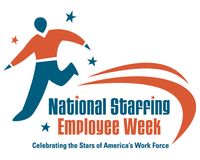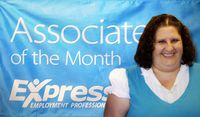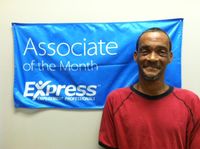 In a previous article, you read about health insurance considerations for job seekers who’ve recently graduated from college. While it’s important for those starting out in the workforce to know their coverage options, those with years of experience who suddenly face cutbacks and layoffs can be just as overwhelmed. And, things can get even more complicated if there’s a family involved.
In a previous article, you read about health insurance considerations for job seekers who’ve recently graduated from college. While it’s important for those starting out in the workforce to know their coverage options, those with years of experience who suddenly face cutbacks and layoffs can be just as overwhelmed. And, things can get even more complicated if there’s a family involved.
If you’ve been laid off from your job and are looking for work, there are several options to make sure your family is protected from life’s emergencies.
COBRA.
The Consolidated Omnibus Budget Reconciliation Act of 1985 provides short term coverage for qualified workers, their spouses, and their dependents after leaving their employer. The duration of coverage is determined by each state. The plan provided closely matches an individual’s or family’s existing coverage, but may be too expensive given the need for the individual to pay insurance premiums in addition of any co-payments.
If you have any questions about COBRA, check with your former employer, or visit the Department of Labor. If COBRA isn’t a feasible option or your benefits are about to end, make sure you start looking for something else two months before the plan expires.
Use a spouse or family member plan.
This option may not be available to the majority of job seekers because most health insurance plans through employers can only add family members once a year during the open enrollment period. Some policies do offer exceptions in situations of marriage, birth, or a change in employment status. Check your family member’s employer insurance policy to see if being added would be a viable option. If it is, this may the preferred choice.
Benefits of trade associations.
Your trade association, or professional associations like the Public Relations Society of America, may offer health insurance. Some of the insurance offered through associations is comprehensive and some is limited, so be cautious in assessing these options. Again, start your research early and see what options are best for you.
Find your own.
If you’re on a budget, consider a plan with a high deductible and lower premiums that will cover you for a major illness or accident. There are several places that can help you choose the best option. Check with your state’s insurance department to see which companies offer local health insurance. Another great place to start is to talk with your doctors or friends about which companies they like best.
Insurance has been a hot topic of debate for the past few years. Finding coverage isn’t easy and can be very confusing and time consuming. But it is vital to your wellbeing and the health of your family to make sure they are covered from life’s unexpected accidents. Take the time to learn the ins and outs so you can stop worrying about health insurance and focus more on the job hunt.
By Jared Cole









